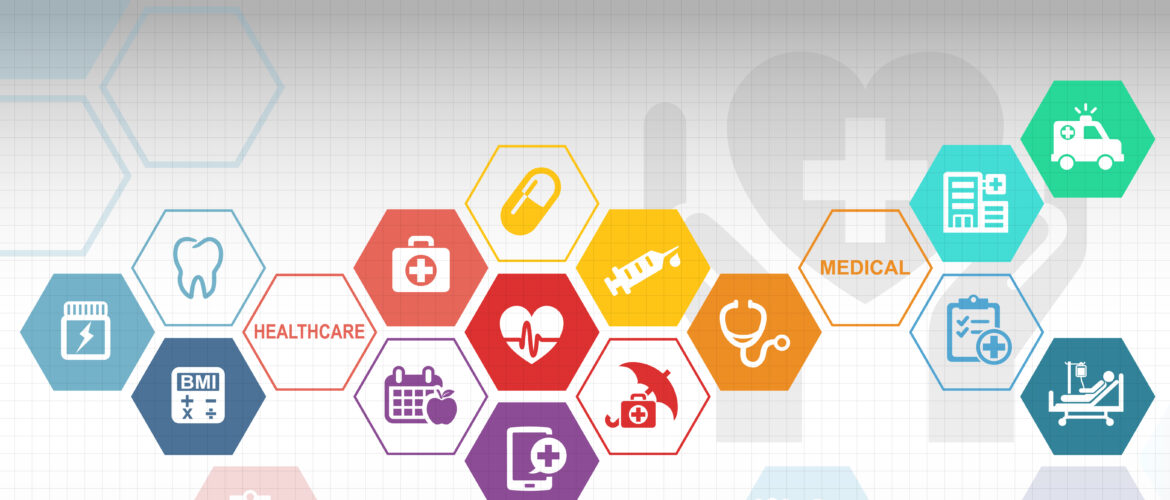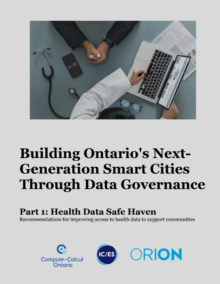Part 1: Health Data Safe Haven
Recommendations for improving access to health data to support communities.
There are many definitions of a “smart city,” but central to all of them is the implementation of advanced technology for the creation of systems and services to support prosperity and quality of life for people. As cities adopt smart infrastructure, they begin to gather valuable data. City data can provide useful insights that improve infrastructural and operational efficiency, but when combined with other data, it can generate foresight, innovative uses, and new value. However, this emerging opportunity raises concerns around how data can be owned, shared, and governed. It also requires policymakers, governments, and city planners to address data challenges that come along with implementing advanced technologies such as privacy, security, individual rights, and privatization of citizen data. Therefore, understanding, developing and adopting applicable frameworks for data governance is crucial to realizing the potential of smart cities.
How do we build smart cities that enable strong decision-making while securing the privacy of individual data?
ORION and Compute Ontario have attempted to answer this question and find ways to balance innovation that leverages city data while furthering individual and social well-being by studying smart cities. We examined existing pilot projects, explored three use case studies in the areas of health and personal mobility data, and open data architecture to enhance economic development in the province, and provide recommendations on next steps. To capture all of this, we have produced a series of reports entitled “Building Ontario’s Next-Generation Smart Cities through Data Governance”. The reports explore data governance models that can support smart cities, economic development, and collection of information, with a focus on Ontario.
We begin the series with a report from the Institute for Clinical Evaluative Sciences (ICES) about creating a data governance model to improve access to health data for a broader group of stakeholders.
ICES as a data safe haven
Health data and research institutes can generate analyses and insights from data collected as well as help inform decision and policymakers to create effective and efficient systems and delivery.
ICES is one of the four prescribed entities under the Personal Health Information Protection Act in Ontario to collect and use personal health information without consent from health information custodians for the secondary purposes of health system planning and monitoring.
ICES came aboard our smart cities project to tackle the challenge of making health data more accessible for the purpose of research and innovation. The report explores expanding data sharing capabilities through the creation of a health data trust model. This would allow for the de-identification of Personal Health Information, while maintaining strong privacy and security protections, under the umbrella of a data governance framework.
Findings
Based on a thorough examination of various data governance models within the existing legislative frameworks in Ontario, here is a summary of the report’s recommendations:
Summary of recommendations:
- Classify ICES as a health data institute in PHIPA regulations to facilitate broader access and economic development, including innovation
- Amend the Freedom of Information and Protection of Privacy Act to permit ICES to collect and use personal information for wider system planning and evaluation
- Assess whether ICES can collect and use personal information data for municipal system planning and evaluation
- Allow ICES to collect and link personal information with protected health information, and disclose the linked dataset to third parties
- Permit ICES to de-identify personal health information for the purposes of onward disclosure to third parties
Smart cities need access to a broader cross section of health data. ICES as a data safe haven could allow for the sharing of health data with municipalities and open up uses for better health planning, programs, and service to improve healthcare delivery.


